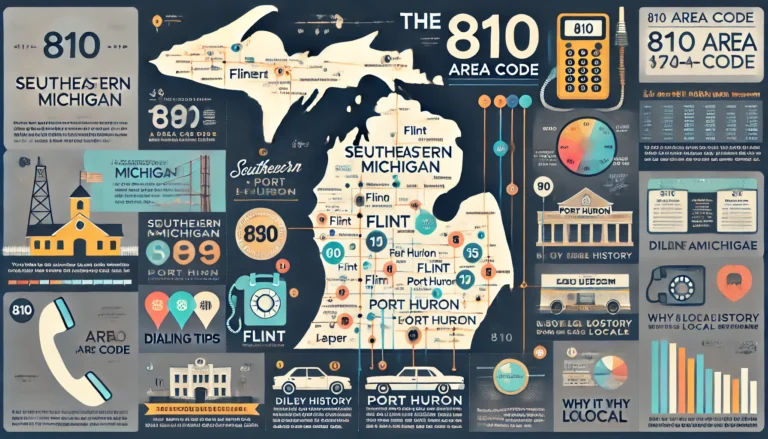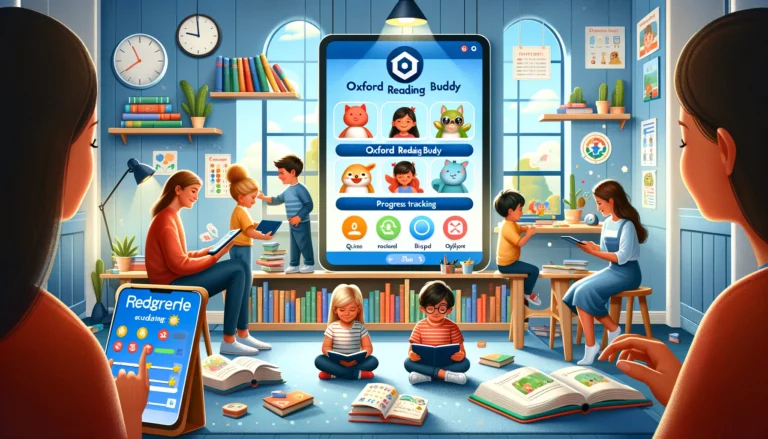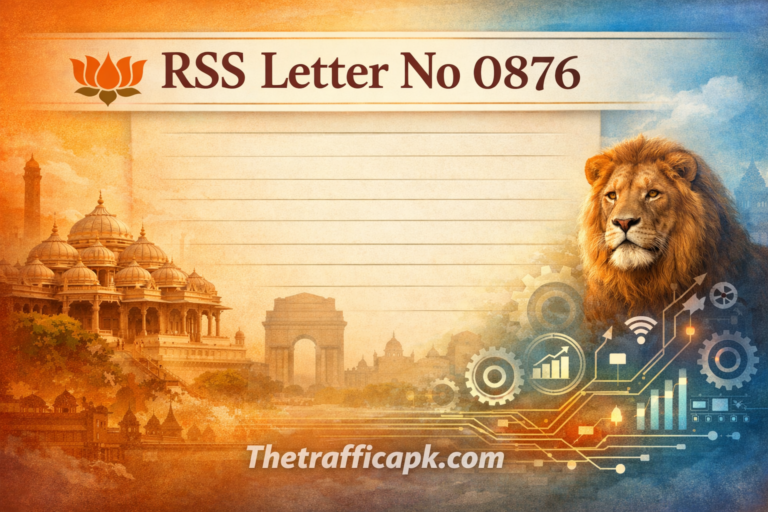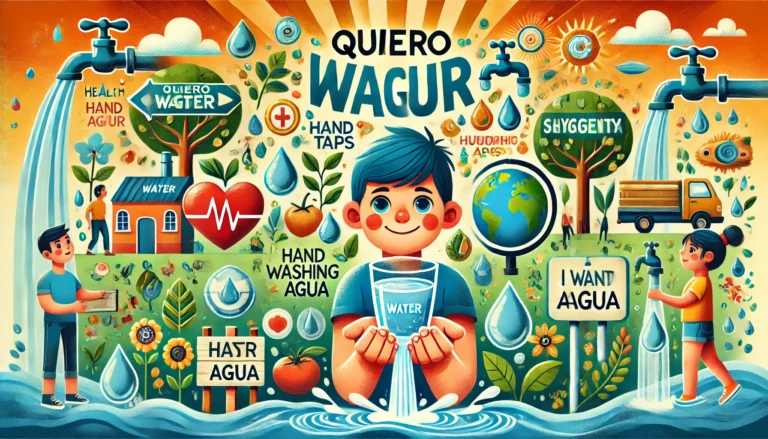How to Secure Social Media Addiction – Deep research on Social Media and Guidelines
How Social Media Destroys Your Life? Science Behind Addiction
Do you know that in the current era, we touch our phones around 2600 times on average in the day? Not only this, according to research after the COVID-19 pandemic, an average screen time of 7 hours a day. It means that we look at this for 7 hours every day. At times scroll social media, watch videos on YouTube, or watch films on Netflix.
If you’re wasting 7 hours on it, it affects not only the rest of your life, your studies, business, and hobbies but also your mind. If you take the phone away from some people, they start getting irritated and restless and some people experience stress. There is no doubt that this has become an addiction. Very few people talk about it. So, today we’ll discuss all the major issues and science behind this addition of social media. The impact it has on your life and most important what can be the solution?
Deep Research of People and Science Behind Addiction
You can’t believe this, but social media addiction can actually be compared to the addiction to cigarettes, alcohol, drugs, and gambling. It sounds weird because cocaine and social media are 2 very different things. Though they are vastly different, the addiction that you’ve developed can be compared to quite an extent. For any addiction, your body follows a set pattern, known as the dopamine pattern.
Firstly, let’s try to understand what dopamine is. Dopamine is a neurotransmitter produced in our brain. This is a chemical formula. A benzene ring with 2 hydroxyl groups at the side and an amine group is attached to an ethyl chain. A neurotransmitter is tasked with sending messages between one part of the brain to another. For example, oxytocin is known as the Love Hormone.
It is activated during bonding in a relationship. Serotonin is a mood stabilizer. It keeps you emotionally stable. What does Dopamine do? For a long time, scientists believed that Dopamine is a pleasure chemical. When we are happy, it is because of Dopamine. But it isn’t true.
According to the latest research, scientists believe that the happiness that we feel isn’t because of Dopamine rather it’s because of the endorphins. Endorphins work as a happiness booster and pain reliever in our bodies. Dopamine is actually connected to motivation and reward. When our mind thinks that we are about to portable in an activity where we might be happy. Anticipating that, our Dopamine levels rise.
Let me explain this as an example, recall the time when you were young and used to wait for your father to come home. You know that your father would bring chocolates for you. But you didn’t know when your father would return. Imagine that the phone rang right that moment, and your father tells you when he will be home exactly. You received your father’s call, he is about to bring you your favorite chocolate.
Even though you haven’t consumed that chocolate yet while waiting for your father to get home, you start salivating for it. Because your brain knows what the taste of the chocolate it will experience later, chocolate is the reward here. A reward that you’ll receive in the future. But its anticipation, while waiting for that chocolate your Dopamine level rises. Due to this, you experience excitement and happiness.
There is nothing wrong with this situation, a healthy body of a normal human works like this. Dopamine plays an important role in your motivation, memory, and learning. An optimum level of Dopamine is very healthy for your body but it shouldn’t be too high or too low. It gets problematic when you have received the reward and your brain reduces the dopamine transmission. It takes it below the baseline.
When you get repeated exposure to the same thing, it creates a Chronic Dopamine Deficit State in your brain. When dopamine is consistently at a low level due to this you can’t experience pleasure at the same level. You can’t experience happiness the same way and so to get the same level of happiness, you require even more stimuli.
It might seem a bit confusing now, so let me use another example. Suppose you’ve received your chocolate, and the next day your father brings you another chocolate, and another on the third day, more chocolate follows on the fourth and fifth days, you get a chocolate every day, and so by the eighth day, by the time your father calls you. Will you have the same excitement? Will you get the same happiness? No, so the novelty of the chocolate wore off.
It’s Similar to Drugs, Cigarettes, and Gambling
The same thing isn’t limited to the achievement of your life. It applies to cigarettes and drugs as well. The first time a human consumes drugs, even a small amount of drugs gives them a big kick. It gives them a lot of pleasure, But eventually, he needs to consume more drugs to get the game level of kick to get the same level of happiness. Just like that, he started consuming a few grams of drugs and large amounts of drugs and became heavily addicted to drugs.
Because the pleasure that his brain was getting, from the said quantity of drugs keeps on decreasing slowly. Social media addiction works similarly. When you see the notification on your phone, your mind expects a reward. Dopamine is released. When someone likes your photo, or someone leaves a nice comment on your photo, it makes you happy. Here you get an instant reward.
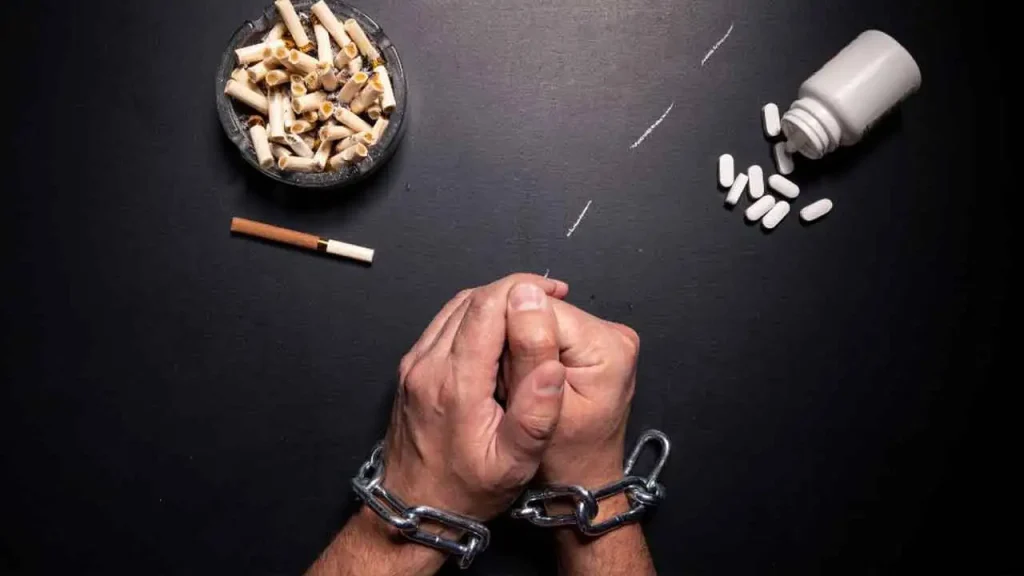
It’s like your brain writing a diary entry, “I am happy because of this thing and I will again”. But slowly, the excitement keeps decreasing. Just 100 likes, only 20 comments, 2 messy messages, and 10 friend requests. It isn’t enough, you start wanting more and slowly you start falling into a pit.
Here, you might be wondering, all the examples I gave now, and the neurological processes in them are the same. So why aren’t we equally addicted to everything? Why don’t we become addicted to clearing IT? Why don’t become addicted to making money? Why do we get addicted to things like drugs, cigarettes, alcohol, and social media? There are 2 main reasons.
- Ease of Access
- Speedy Reward
How easily accessible are the events? How soon do you get rewarded for doing it? There are 2 risk factors for being addicted to something. If you keep getting chocolate easily and frequently, you can be addicted to chocolate as well. Sugar addiction is a thing, but you can become addicted to clearing IT because there you don’t get any speedy reward. You have to work hard for years to get this reword.
You can become addicted to making money when you have the ease of access. When you have an easy way to make money you’re getting a speedy reward. You’re earning a lot of money very quickly. It is the same thing in gambling addiction as well. The people who gamble away their money. They waste their money in casinos, where they have ease t access. They know that if they go to a casino they can win a lot of money.
That’s why it is easy to be addicted to gambling. But to start a business, or create wealth slowly from a job, it isn’t so easy to get addicted to that it is next to impossible because there are no speedy rewards or easy access. Now, let’s look at these from the perspective of social media. Social media and your phone are very easy to access. Whether it is Facebook, Twitter, WhatsApp, or Instagram, you simply pick up your phone unlock your phone with a swipe, and with one tap, the three apps can be opened.
The second thing, you get speedy rewards as well. The likes you get on your post or the comments on it, and the messaging of so many people that’s on Facebook. Another is the video that you watch on Instagram, TikTok, and YouTube Short, the entertainment that you get out of it. If it’s a comedy video, the resulting laughter is a reward.
TikTok Addiction
The TikTok App has higher ease of access and seedy rewards than other social media platforms. On TikTok, you don’t even need to search for videos. You simply need to swipe. Even if you don’t swipe, the next video will start playing on its own. The reward is instantaneous with a new reward every 20 or 25 seconds. That’s why apps like TikTok are much more addictive than in comparison to Instagram or YouTube.
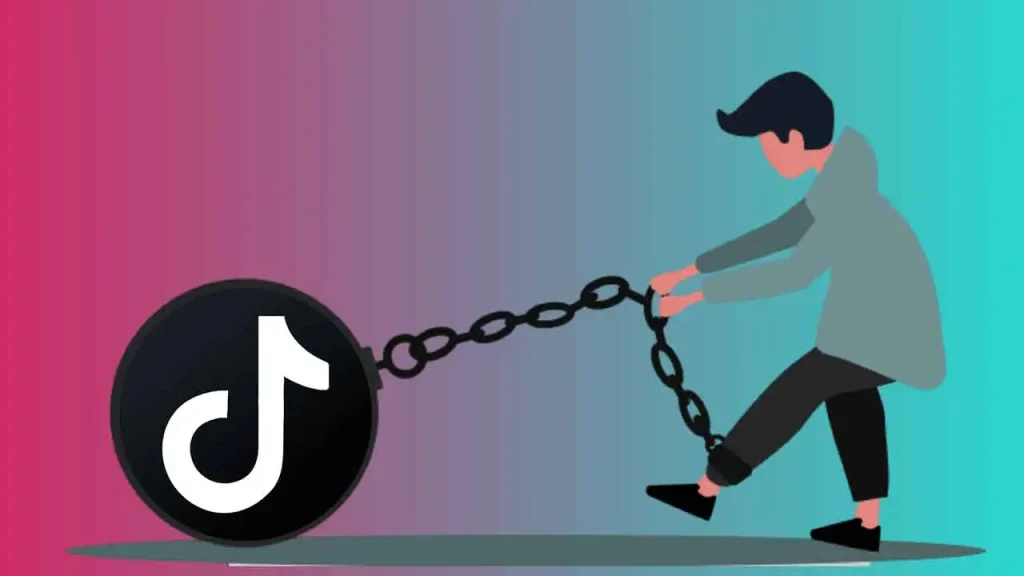
On YouTube, the ease of access is a bit hindered. Because often you have to search for videos on your own. You have to tap on the video to play it. On the other hand, TikTok plays the videos automatically as soon as you open the app and it keeps swiping down automatically. Compare it with other activities.
Suppose you want to read a book it needs patience. Until you’ve read a few pages of the book, you won’t be rewarded. It takes a lot of time. If you want to play outside, you will have to put on a T-shirt a pair of shorts, and shoes, and then you’ll have to walk outside. There will be physical exertion on your body. It reduces the ease of access further.
If you want to meet your friends, you’ll have to call them, make plans with them, you will have to dress up and then go out. The ease of access decreases further. Do you know what is the most worthless and dangerous thing, all the social media companies have intentionally designed their app like this.
They have conducted detailed studies to find out what attracts people more psychologically. Things that make people more addicted. Things that would encourage people to use their apps more and spend more time looking at the screen so they use the findings to manipulate their apps.
These companies saw us as prey and laid brilliant traps for you. Some professional people conducted several high-level psychological analyses of people and surveys to find out these triggers. From the color scheme to the layout of the button in the app, they have to pay attention to all of it. Earlier, when you scrolled on Facebook, eventually the newsfeeds would end after you had read the posts of your friends. But now, they have added infinite scrolling.
Now, you can continue scrolling, and Facebook will keep on showing you something or the other. Because their main motive here is to make you spend more and more time on Facebook.
Traditionally, we have always wanted to explore things on our own. Meet new people go to new places, learn new hobbies, and gain new knowledge. But to explore something new requires patience and is time-consuming.
The ease of access and speedy reward that you get from your phone is much more. That’s why it is so much easier to rely on that. Social media addiction is dangerous for your life for a host of reasons.
1 – The first and simplest reason is that you will be wasting your time. But this is a surface-level reason, apart from this, there is an increase in radicalization. If the algorithm keeps showing you things you like, then the political viewpoint is developed in an echo chamber. If you like right-wing posts, you will be shown right-wing posts only. If you like left-wing posts, you will be shown left-wing posts only.
2 – It increases insecurity and depression. When you look at the social media pages of people. They look so beautiful when you look at them through flitters The teenagers then start feeling more and more anxious and eventually get depressed. Especially, when they get comparatively fewer likes. If you look at Facebook ads Mark Zuckerberg has built an Image claiming that introverted strangers start talking to each other on Facebook. They start messaging and then exchange phone numbers and meet in real life.
Facebook is such a wonder for humanity. But Harari asked Zuckerberg if Facebook’s role is to connect the people. Or Facebook is tasked with keeping people glued to Facebook. What happens actually is that your real-life friends become Facebook friends and you see their updates on Facebook and interact on Facebook through comments and messaging. Eventually, stop meeting people in real life.
How many of your Facebook friends have you met in real life? Anyway, we turn to our main point the problem is Social media addiction. If used in moderation, social media can be used for good. I’m not saying that you should completely stop using social media. After all, you are reading this content through the social media app itself and my work is completely through social media.
Stop Social Media Addiction
How do we stop this addiction? The answer to it is hidden in the 2 factors. Ease of Access and Speedy reward. If you want to stop any addiction, then you’ll have to reduce the ease of access and eliminate the speedy reward.
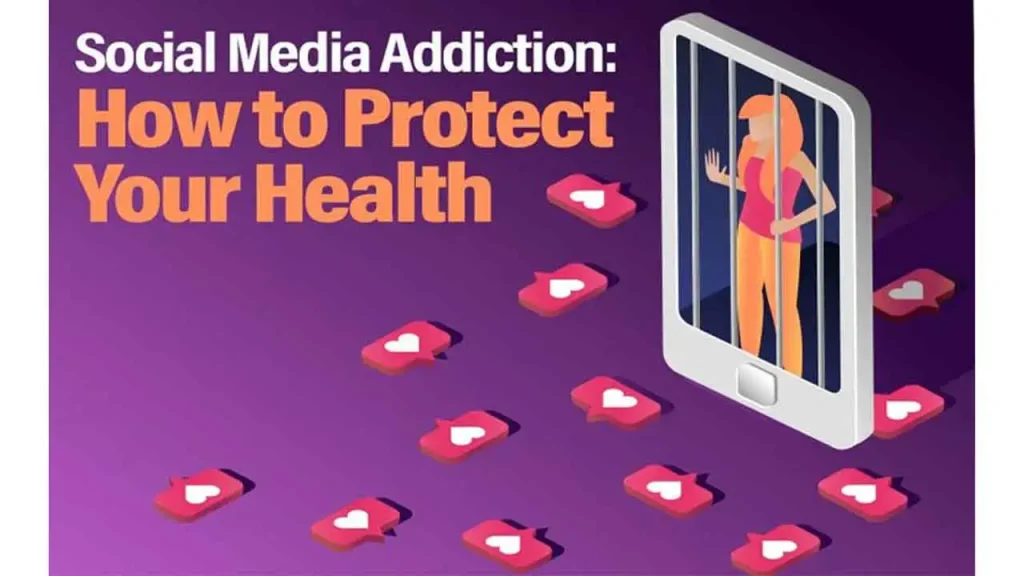
Today, it is so easy to log into the Social Media app, that you pick up the phone, unlock it, and tap on the app. But if it weren’t so easy would you really social media app to us? A simple solution is to delete all social media apps from your phone. I’m not asking you to delete your account, I’m asking you to delete the apps. If you then wish to access social media, you can do so from your phone’s browser or on a laptop. It will help by reducing the ease of access.
It wouldn’t be as easy as it is now to open those apps. Thus, your behavior would change. If this seems too much for you another thing that you can do, is to turn off notifications. With this, your mind will not be expecting a reward every minute or every hour. You’ll open the apps only when you want to.
The solution depends on your addiction level. If you think that you aren’t very addicted to it turn off the notification. If you think that your addiction is turning problematic delete the apps. If you think that you are very addicted to it and you need to cut it significantly then use these apps only by private browning. It means that whenever you log in a Facebook, Instagram, or TikTok, you will have to enter your password every time. This would hinder the ease of access even more.
The simple logic is, that the more difficult the action would be for you, the easier it would be to eliminate your addiction. The same thing applies to phones as well. Do you know that on my phone, the sound is never on? Irrespective of the notification there will be no sound alerts.
Because I don’t want to be distracted because of the notification to the extent that I ignore my work and look at the phone.
On average, a person unlocks their phone 110 times a day. So, when I’m already going to look at the 110 times, I’ll check the notification then. The same logic can be used to control various types of addiction. If none of the shops around you sell cigarettes, it becomes very difficult for you to buy cigarettes or you don’t have the money to buy them. Obviously, it becomes more difficult for you to be addicted to smoking.
The same thing applies to gambling addiction, If you don’t have any means to gamble, there are no casinos around you. Obviously, you won’t get addicted to gambling. So, we will discuss all the main points of how to control social media platform addiction. If you’re gaining some extra knowledge of my guidelines it’s my pleasure to consult you.




